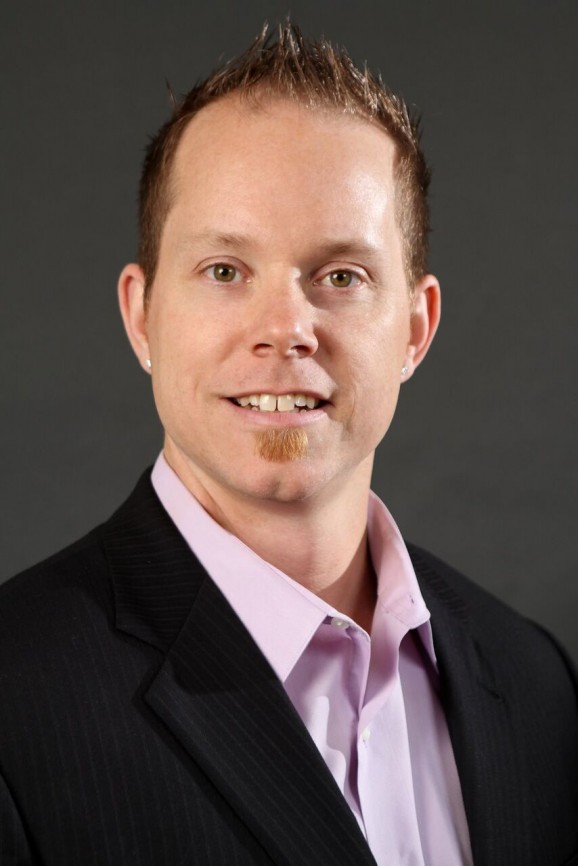



Shane Barker is a leading digital marketing consultant who has been working with various celebrities, start-ups and also the fortune 500 companies. He has over 20 years of experience helping businesses devise the right digital marketing strategies and implementing them for business growth. Shane has been a contributor to publications like Yahoo Small Business, Salesforce, and Marketing Profs and more.
Shane has also been actively guiding and mentoring young entrepreneurs/small companies and start-ups to build and scale up. He is a regular at hackathons and various other start-up events. In this interview, Shane talks about his consulting practice, career, clients, case studies, digital marketing trends and lot more. Read on.
Kavin Paulson: Hi Shane, thank you so much for your time. Can you tell us more about yourself and your consulting practice?
Shane Barker: Hey! I have been in the digital marketing space for over 20 years. And for the last four years, I have been a consultant for various startups as well as the Fortune 500 companies.
My team and I do everything it takes to help brands grow significantly. This includes leveraging content marketing, SEO, PPC, and many other tactics to drive great traffic to their businesses. And then help them engage and convert audiences into loyal customers.
There are two ways we work with our clients. They can either hire my entire team to handle their brands’ marketing needs or they can hire me as a consultant to educate and train their teams.
Kavin Paulson: How has been the experience working with celebrities and managing their online reputation? Can you share some insights with us on celebrity reputation management? (Would like you to share a couple of names of your clients, if you may do so..)
Shane Barker: Due to the non-disclosure agreements and contracts we have with our celebrity clients, I can’t share their names. But I can tell you about what we have done for them.
We have had a number of clients who faced bad publicity. People sometimes post negative stories and other crazy stuff online about celebs (many of which aren’t even true).
We help push that content down and push good content up. We help our clients manage their social profiles better by boosting good content that enhances their online reputation.
Another thing to note here is that we only work with celebrities who are really doing something good. We don’t believe in helping people who have done something bad and are looking for a hideout.
KP: What would be your working style when you take over a marketing team and when you provide only tactical consulting? How does your approach change?
SB: When taking over a marketing team, we help brands create a strong digital marketing strategy to convert more leads into actual sales. We usually set up a 3-6-month or 1-year contract, depending on our clients’ needs and the goals they want to achieve.
During the program, we work to:
We follow a hands-on approach based on deadlines and S.M.A.R.T. goals to help brands achieve what they have been looking for.
While providing tactical consulting, I help them put a solid strategy in place to excel at:
You can always reach out to my team for more information.
KP: Please briefly walk us through your career path.
SB:I started off with actually working in restaurants in a variety of job roles such as a butcher, server, then bartender. I went on to open restaurants all over the nation for a brand called “Shelly’s Mexican Restaurants.” I did that for quite a while.
Then I came back to Chico, California, where I went back to school. I also got to work at a company which introduced me to the web and online marketing space. That’s when I started working with a lot of freelancers.
Later, I got a chance to learn more about this industry, working with a team of 130+ people. We were making $25 million a year, and it was a crazy business.
Based on everything I learned during those times, my team and I now help brands achieve their marketing goals. We do everything from SEO to content marketing, influencer marketing, and a lot of speaking engagements. I am also writing a book.
That’s just a glimpse of what my journey has been like. Hopefully, there’s a lot more to come…:)
KP: What does your typical day look like?
SB: I usually get up at 5:30am and start my day with a cup of energizing coffee.
I then connect with my team through Slack, going through whatever we’re working on. Usually, I have 3 or 4, or sometimes eight meetings in a day. It totally depends on the day.
Then I have some “me time” when I workout or do something to maintain a healthy work-life balance.
Around 9pm, I go to bed, wake up the next morning, and do it all again!
KP: Can you share with us some details of one of the biggest marketing campaigns that you have ever run? What did you do differently? What were the factors that made the campaign extremely successfully?
SB: I would say my biggest marketing campaign was an influencer marketing campaign for Zoe Rodriguez, a fitness influencer. We helped them grow their sales from $400K to somewhere around $1.6 million in less than one year all through influencer marketing.
What we did differently was that we relied on influencer marketing. We didn’t do any SEO, and only posted a little bit of blog content.
A majority of their sales were a result of influencer collaborations. The factors that contributed to making it a success include:
It was a wonderful experience working on that campaign!
KP: Can you name a few of your biggest clients and your experience working with them?
SB: So when you say, “biggest clients,” it’s a bit difficult to decide which ones to talk about!
One of the clients we worked with is BigCommerce, a leading ecommerce platform for growing brands. We have worked with them for a number of years and it has been a good journey.
KP: You have also been a mentor to many entrepreneurs and have been actively involved in hackathons and start-up events. Can you share some tips with budding entrepreneurs on how to build a digital presence during the start-up phase based on your experience? Also, what do you think are the major challenges faced and mistakes committed by start-ups when it comes to building a digital presence?
SB: Though a majority of startups leverage digital marketing today, not all digital marketing strategies have the potential to hit the bull’s eye. In fact, there are many which don’t even get close to driving the desired results in terms of reach, engagement, or leads.
I would suggest that budding entrepreneurs should tap into the power of influencers to reach out to wider, more engaged audiences in their niches. The best part is that you can drive great engagement while working with micro-influencers too, who generally charge just $250-$300 per sponsored post.
When we talk about challenges or mistakes, I believe that many budding entrepreneurs fail to set proper goals and KPIs for their digital marketing campaigns.
I strongly recommend that you set S.M.A.R.T. goals for every marketing campaign to drive the best results. S.M.A.R.T. stands for:
KP: What is the one piece of advice that you would like to give to budding entrepreneurs?
SB: I would suggest that budding entrepreneurs carefully plan their goals, KPIs, and strategies. The right metrics will help them ensure that they are moving in the right direction.
As an entrepreneur, you should also ensure that you pick the right people for your team. The people you choose to work with can either make or break your business’ growth.
Working with the right people to leverage the right strategies is how you gradually move towards achieving your goals successfully.
KP: With emerging technologies like AI, IOT, Conversational Interface, Automation, and PWAs etc. taking over the digital world, how do you think the digital marketing landscape will change 5 years from now?
SB: Absolutely. Due to the fast pace of the marketing industry and the advancements in technology, the digital world will be quite different from what it is today.
The software and platforms we are using today will be updated and improved, and we’ll also have a lot of new stuff coming up in five years. That’s why the digital marketing landscape is always evolving and there’s always new stuff to learn about.
KP: If you could change one thing about the digital marketing industry, what would that be?
SB: The one thing I would like to change about the digital marketing industry is the presence of misinformation.
There is a lot of misinformation around the web that asks people to do things in a certain way and many people follow that. They fall for irrelevant strategies and tactics which barely bring them any significant results.
So I suggest that you always watch out for the quality of the content you refer to.
KP: If you were not a digital marketing consultant, what would you have been?
SB: Let me think… what did I want to be when I was a kid…? 😉 I guess, I always wanted to be an entrepreneur. There’s really nothing else that I wanted other than running my own business.
Maybe the thought of becoming a fireman attracted me at one point.
KP: Where do you see yourself five years from now?
SB: Five years from now, I see myself working with a team of 100+ employees and doing great business worldwide.
KP: How would you describe yourself in one word?
SB: The word could be “motivated” as I am quite motivated to get things done.
KP: On a lighter note, what would you do if you woke up one morning and found that you had become Mark Zuckerberg, the Chairman and CEO of Facebook? 😀
SB: I don’t know what I would do. In fact, I don’t know if I would want to be Mark Zuckerberg. I don’t think I’d like to have that many responsibilities.
So I’d probably go back to sleep and then wake up as Shane the next day.
 Interview with Grant Simmons, Director at The Search Agency
Interview with Grant Simmons, Director at The Search Agency
 Interview: In Conversation with Jeet Banerjee, the 20 year-old Passionate Entrepreneur
Interview: In Conversation with Jeet Banerjee, the 20 year-old Passionate Entrepreneur
 Interview: In Conversation with the Renowned SEO Expert Eric Enge
Interview: In Conversation with the Renowned SEO Expert Eric Enge